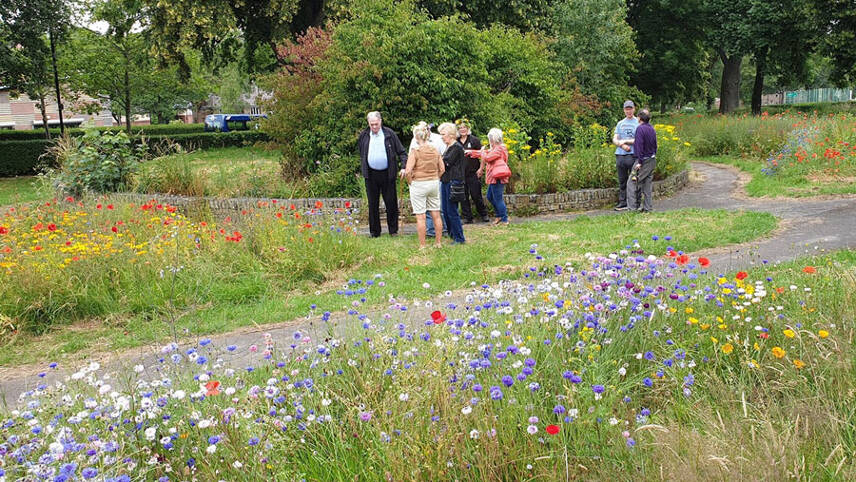Register for free and continue reading
Join our growing army of changemakers and get unlimited access to our premium content

Image: Sheffield and Rotherham Wildlife Trust
A new analysis from the charity, ‘A Natural Health Service: Improving Lives and Saving Money’, reveals that green prescribing can save more in healthcare costs than the expense of running such a scheme.
Green prescribing, an evidence-based component of social prescribing, involves referring individuals to nature-based programs to enhance physical and mental health, harnessing the benefits of spending time in nature.
The Wildlife Trusts’ head of health and education Dom Higgins said: “This new research proves the immense value of nature-based projects for improving individual health and helping to ease the burden on the NHS.
“Nature is an essential part of health and social care, but we are not maximising that potential. Green prescribing works and the more we can develop these kinds of programmes, the greater the benefit to society.”
The new research, undertaken by Ricardo plc, analysed five Wildlife Trusts programmes to see how they benefitted the NHS.
For instance, Wild at Heart by Sheffield and Rotherham Wildlife Trust saw healthcare cost savings of £38,646 for 82 participants over a year, while MyPlace by Lancashire Wildlife Trust resulted in healthcare cost savings of £7,024 and reduced employment-related mental health costs of £28,442.
The organisation claims that offering one of these programs to an estimated 1.2 million people could lead to yearly cost savings of £635.6m.
The Wildlife Trusts is urging the Government to integrate green prescribing into community health and social care services, encourage shared investment from various government departments, and provide support to strengthen partnerships between local healthcare services and community-rooted organisations for enhanced access to nature-based programs and NHS benefits.
Policy brief to tackle pharmaceutical pollution
This week, a policy brief was unveiled during a House of Lords event, advocating for ‘eco-directed and sustainable’ interventions in pharmaceutical prescribing. These could reduce waste medicines and plastic waste, while saving the NHS time and money.
The policy brief recommends maximising non-pharmacologic interventions, optimising medicine use, integrating discussions about the environmental impact of pharmaceuticals during patient consultations, and adopting patient-centered healthcare interventions through shared decision-making between patients and healthcare providers.
While developing the recommendations, the developers of the policy brief noted that NHS England’s Greener NHS initiatives, which prioritise decarbonisation, have limited plans to address pollution caused by prescribed pharmaceuticals.
In contrast, NHS Scotland’s recently published new climate emergency and sustainability strategy, recognising the importance of reducing pharmaceutical pollution alongside carbon emissions from pharmaceutical use.
The NHS has established targets to achieve net-zero by 2040, aiming for an 80% reduction in controllable emissions by 2028 to 2032. Additionally, it aims to reach net-zero by 2045, with an 80% reduction in emissions it can influence by 2036 to 2039.


Please login or Register to leave a comment.